In March 2011, China started the construction of the world’s biggest radio telescope in Guizhou province, south west China. The Five hundred meter Aperture Spherical Telescope, or FAST, is a gigantic radio telescope that’s the equivalent of 30 football pitches, and it would allow scientists to “listen to the UNIVERSE.” Take a look!
The astronomy project, expected to be completed by September 2016, costs approximately 1.2 billion Yuan, making it China’s biggest astronomy project to date.
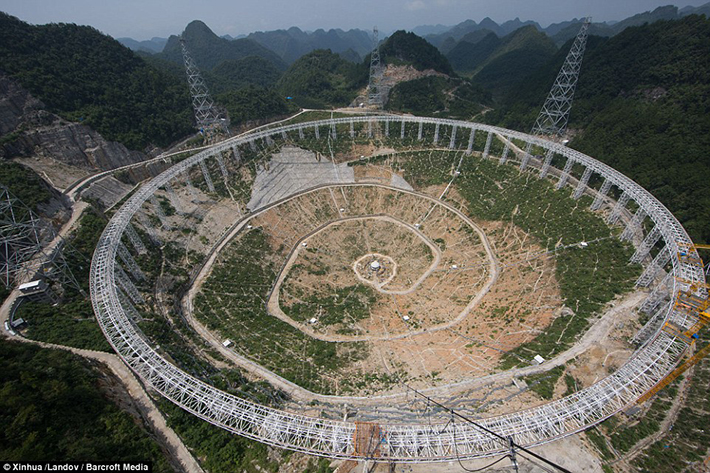
via DailyMail
According to People’s Daily Online, the enormous telescope “will allow scientists to get weaker radio signals from outer space, even further than our solar system”.
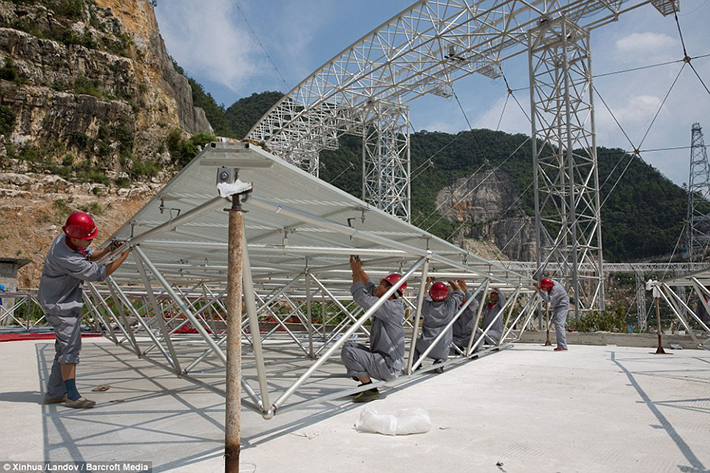
via DailyMail
The idea of building this single-aperture radio telescope was first proposed in 1993, but it was only approved in 2006 after an international review and advisory conference on the science and technology of FAST.
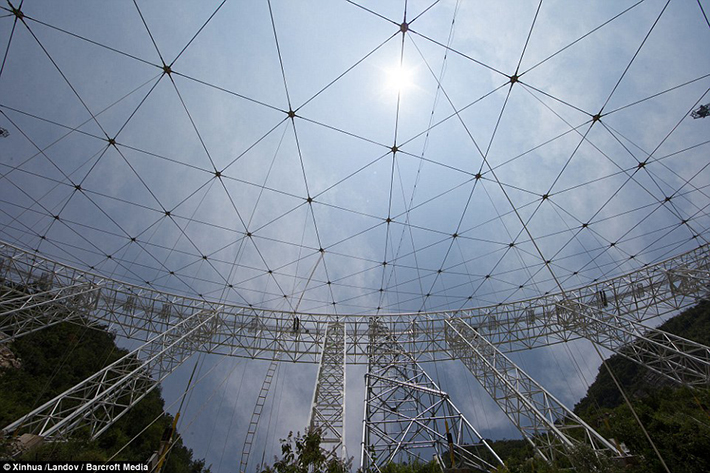
via DailyMail
Scientists scouted more than 30 locations until they landed on the Dawodang Depression, a natural depression in Guizhou Province. The natural landscape provides the perfect size and shape for construction. There’s also only one town in the 12-mile radius which makes Dawodang Depression extremely isolated from magnetic disruptions.
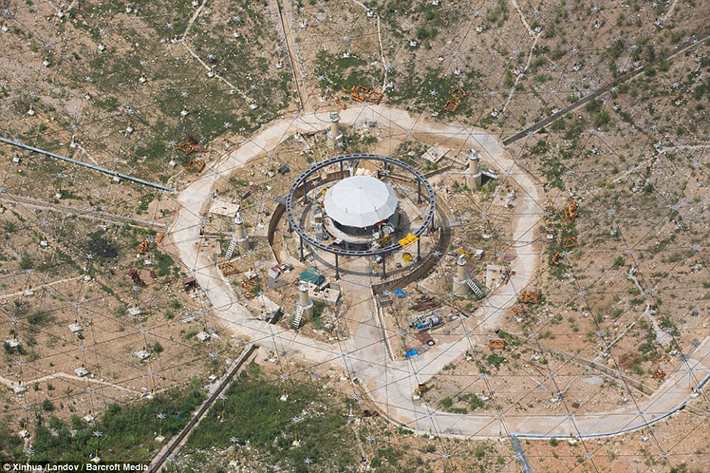
via DailyMail
The ground also provides enough support for the gigantic telescope with the porous soil forming an underground drainage system that protects it. The remoteness of the location also protects the surrounding landscape from any damage.
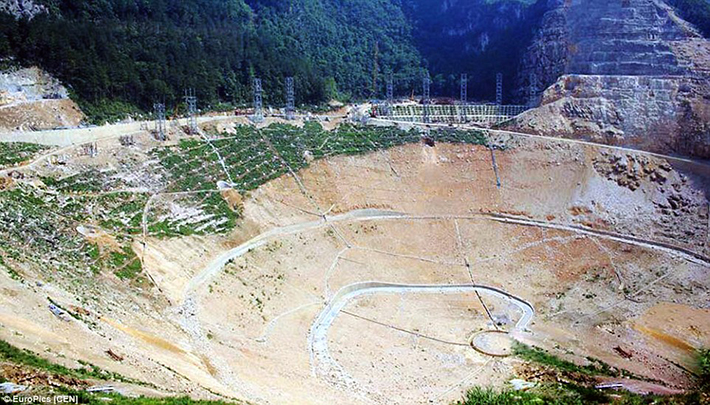
via DailyMail
The telescope is made up of 4,450 reflective panels. Each panel is controlled by cables to ensure radio signals can be recorded from every angle. With it’s sophisticated design, FAST has been described as the ‘ears’ that will help scientists listen to the universe.
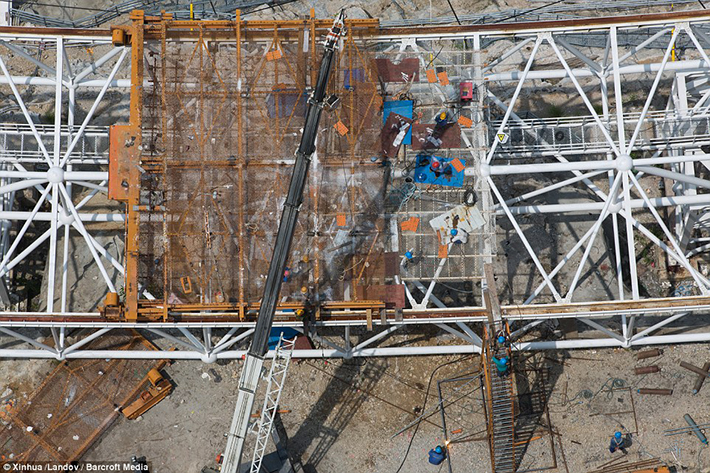
via DailyMail
Scientists welcome the construction of the enormous telescope as it will boost the human capacity to observe outer space. Chen Xuelei, a physicist, said that FAST can help prove Einstein’s relativity theory once more data of gravitational waves can be retrieved from the telescope.
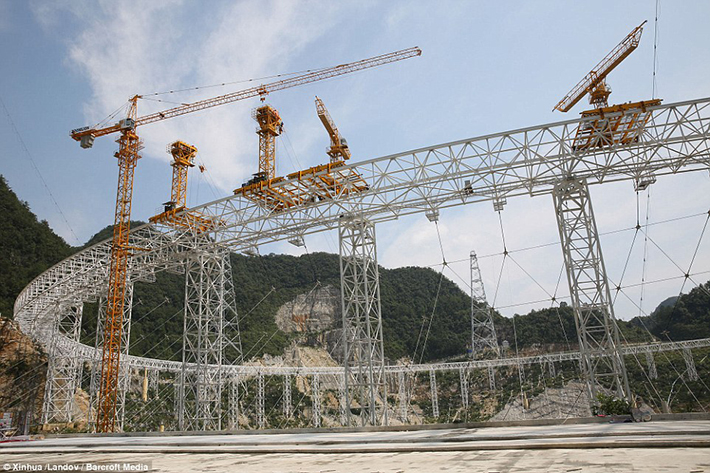
via DailyMail
Li Di, the chief scientist of the National Astronomical Observatories Chinese Academy of Sciences, said: “The biggest challenge of this project is to calculate quickly and attached these data to thousands of computers to change the direction of such a gigantic telescope. We will be using lasers to pinpoint the exact coordinates, accurate to millimetres.”
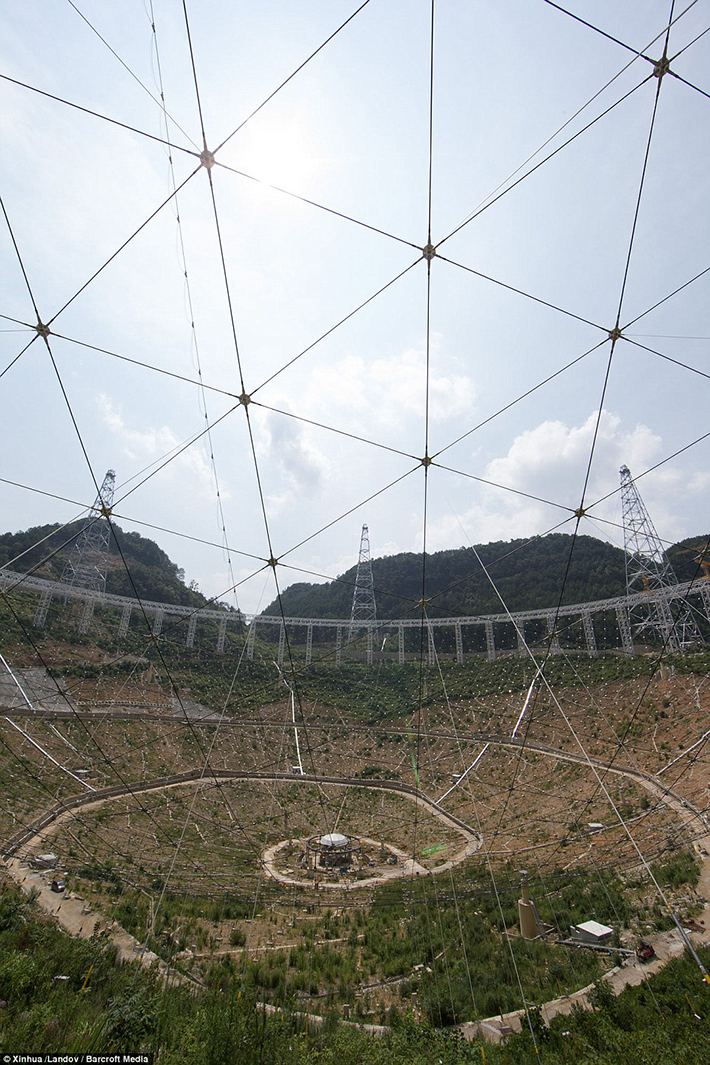
via DailyMail
The Arecibo Observatory in Puerto Rico will lose its title as the largest single aperture radio telescope once FAST is completed. FAST will also be able to survey the outer space betten that Arecibo.

via DailyMail
“FAST can answer questions not only limited to astronomy but questions about humanity and nature. The scientific potential of this telescope is hard to predict”, Li Di added.
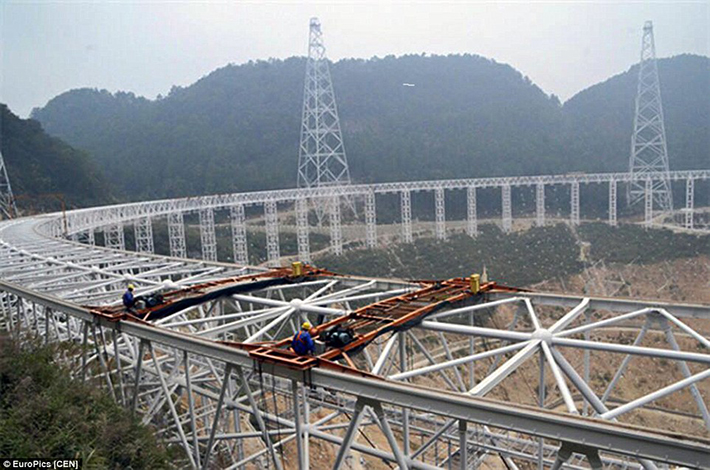
via DailyMail
FAST is so massive it will take up to 40 minutes to walk around the telescope which measures more than 1 mile in diameter and spans 30 football pitches.
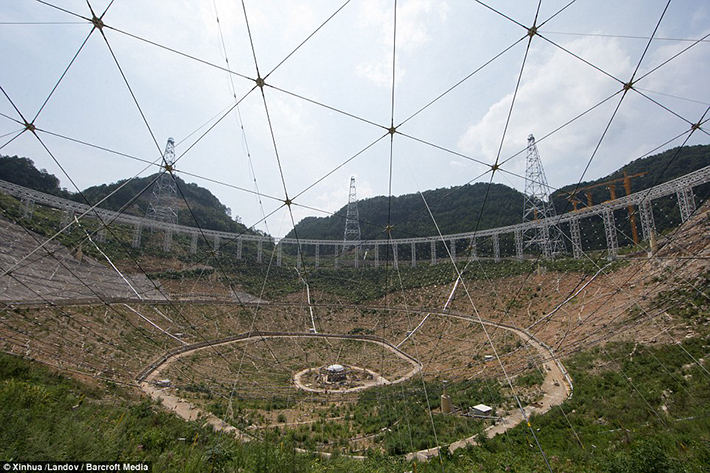
via DailyMail
H/t Daily Mail

